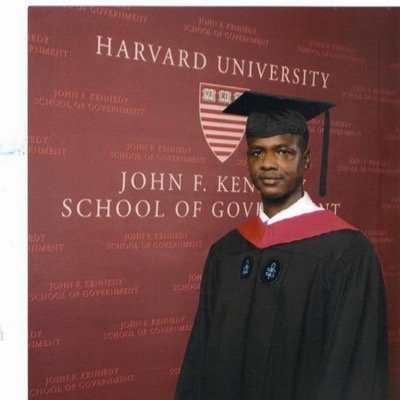 Alagi Yorro Jallow.
Alagi Yorro Jallow.Mamudu: I am still struggling to get my mind around what Democracy means for our collective future. I will not try to sort it out here in a Facebook post. Alas! The liberty of a democracy is not safe if the people tolerate the growth of private power to the point where it becomes stronger than their democratic state itself. That is a dictatorship—the ownership of a government by an individual, by a group, or by any controlling private power is an anathema to Democracy.
I will say that what happened cannot be explained simply as a political establishment’s failure, although it has failed spectacularly. Nor is it merely a problem of demagoguery or sycophancy—although both are alive and well and flourishing at this moment. Nor is this fledgling Democracy simply a matter of humans being treated as disposable—like plastic bottles tossed in a landfill—as political and social media elites spew propaganda that encourages us to view “the others” as the enemy.
The problem runs deeper than all of that. The truth is we are stumbling badly in large part because we are just beginning to learn to walk. More than three decades ago, we had a quasi-democracy; it was not a true democracy by any stretch. We still do not have real Democracy. However, we have recently managed to revive a new democratic-like system. In the words of William Faulkner, “The past is never dead. It’s not even past.” So our leaders should be aware of Democracy and avoid demagoguery but again, be mindful of “clicktivism and sycophantism politics.”
Mamudu: It is said that humans are creatures of habit; perhaps that is why George Sanataya cautioned, “Those who cannot remember the past are condemned to repeat it.” On the other hand, maybe you agree with Mark Twain, who said, “History doesn’t repeat itself, but it does rhyme.” In today’s Gambia, with what rhyme and reason do we proceed? As we listen to our nation’s leaders and watch their ways, it is becoming quite apparent that history continues to repeat itself. Consider the following.
Our political leaders are often misadvised and misdirected because most of those they rely on to govern are demagogues and sycophants who hardly tell them the truth. However, the extent to which demagoguery and sycophancy have taken over reality and stunted our political development can be gauged from the daily praising of failed politicians, so-called muckrakers, and spineless pundits on social media, often selling to innocent Gambians falsehood and propaganda to the extent that the wrong people are appointed to sensitive and vital positions. No leader would say that things should not move forward in the country. The problem is the people around them, who do not advise them well.
Mamudu: I have observed that ninety-nine percent of people who hover around our political leaders are sycophants and praise-singers. So let us be frank with our leaders to get us out of where we are today. Gambian politics is in trouble because the citizens have allowed deception, denial, disinformation, diversion, evasion, exaggeration, indoctrination, lying, media manipulation, mind control, propaganda, scapegoating. Smear campaigns are the signs of sycophancy in our politics and governance.
Mamudu: I believe our Democracy must be freed from the suffocating grip of an all-knowing typical “African Big Man” myth. Comrades Deyda Hydara, Solo Sandeng, Captain Ngag Jagne, Captain Lamin Sanneh, and a host of others, along with other folks, did not die for us to have a quasi-democracy. They died for the Gambia and Gambians to be free, and we failed to reap the great benefits of that resistance and struggle. Would you please think of the heroes who helped saved our Democracy and the martyrs for our Democracy and others who died fighting for our Democracy? Gambians Democracy heroes and martyrs will spit on their graves when we let Democracy slip away into the sewer of benevolent dictatorship akin to Yahya Jammeh. Never Again!
The Gambia is a country ready to be taken, longing to be taken—by political leaders willing to restore substantive and procedural Democracy and trust the political process after all the bitter horrors of Yahya Jammeh’s rule.
Mamudu: The Gambian people do not want a democracy that cannot guarantee citizens one square meal a day. This Democracy cannot guarantee three hours of electricity daily, a democracy that cannot afford to allow people to protest, a democracy that cannot guarantee the freedom of the press and of speech and respect for the Constitution, a democracy that is standing on its head, a democracy that takes one step forward and three backward.
Let us never forget that the government is ourselves and not an alien power over us. The ultimate rulers of our Democracy are not President Barrow and government officials but the voters of this country. The government is us; we are the government, you and me. We can heal the wounds of this nation or aggravate such injuries. We can bring peace to this nation or cause chaos to erupt in it.
Mamudu: We are famished for a new beginning. We want President Barrow to help “Make the Gambia Great Again” by making our institutions strong, as solid institutions would make our Democracy great again. We want our leaders to build a thriving multi-ethnic, multi-faith, egalitarian democracy out of the rubble of dictatorship. Gambian people are interested in being part of something more significant than the sort of small, petty, slash-and-burn politics that we have seen over the past several years.
 Alagi Yorro Jallow.
Alagi Yorro Jallow.
 Alagi Yorro Jallow.
Alagi Yorro Jallow.
 Alagi Yorro Jallow.
Alagi Yorro Jallow.
Ma sha Allah great and thanks for sharing